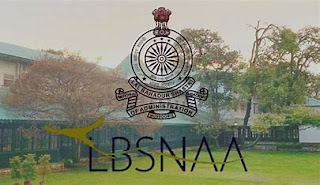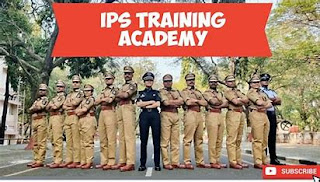- In India, a indigenous body known as UPSC( Union Public Service Commission) is in charge of holding civil service examinations and choosing campaigners for a variety of superintendent and governmental positions, including those in the Indian Administrative Service( IAS), Indian Police Service( IPS), and Indian Foreign Service( IFS). The tests are regarded as being extremely competitive and necessitate substantial study and subject- matter moxie.
UPSC FULL FORM
Union Public Service Commission
UPSC EXAM PATTERN
The UPSC exam pattern consists of three stages:
- Preliminary Examination: This is an objective type exam consisting of two papers: General Studies Paper I and CSAT (Civil Services Aptitude Test) Paper II. Both papers are of 200 marks each and are conducted in the offline mode.
- Main Examination: This is a descriptive type exam consisting of 9 papers, out of which 7 papers are considered for final ranking. The papers include Essay, General Studies I to IV, Optional Paper I and II, and two language papers (one is English and the other is a regional language). The Main Examination is conducted in the offline mode and is of 1750 marks.
- Personality Test: This is the final stage of the selection process and consists of an interview conducted by the UPSC board to evaluate the candidate's personality, suitability, and ability to handle different situations.
Candidates who qualify in the Preliminary Examination are eligible to appear for the Main Examination, and those who clear the Main Examination are called for the Personality Test.
UPSC ELIGIBILITY CRITERIA
The eligibility criteria for appearing in the UPSC exam are as follows:
- Nationality: The candidate must be a citizen of India, Nepal, Bhutan, or a Tibetan refugee who came to India before January 1, 1962, with the intention of permanently settling in India.
- Age Limit: The candidate must be at least 21 years old and not more than 32 years old as of August 1 of the exam year. Age relaxation is provided to certain categories, such as SC/ST, OBC, and PwD candidates.
- Educational Qualification: The candidate must hold a bachelor's degree from a recognized university. Candidates who are in their final year of graduation or awaiting their results are also eligible to apply.
- Number of Attempts: The maximum number of attempts for the UPSC exam is six for general category candidates, nine for OBC candidates, and there is no limit for SC/ST candidates.
- Conducting Body: The UPSC (Union Public Service Commission) is the conducting body for the Civil Services Examination in India.
- Services Offered: The Civil Services Examination is conducted to recruit candidates for various services including the Indian Administrative Service (IAS), Indian Police Service (IPS), Indian Forest Service (IFoS), Indian Revenue Service (IRS), and other central services.
- Selection Process: The selection process for the UPSC exam consists of three stages: Preliminary Examination, Main Examination, and Personality Test (Interview).
- Application Process: The application process for the UPSC exam is conducted online on the official website. The registration process usually begins in February or March, and the exam is conducted in June.
- Syllabus: The syllabus for the UPSC exam covers a wide range of topics, including current events, history, geography, economics, polity, environment, and ecology, among others. It is important to prepare thoroughly and cover all the relevant topics.
- Preparation: The UPSC exam is considered to be one of the toughest exams in the world, and candidates need to prepare for it rigorously. This includes studying from books, newspapers, and online resources, as well as taking mock tests and practicing previous year's question papers.
- Importance: Clearing the UPSC exam is considered to be a prestigious achievement in India, and candidates who clear the exam are considered for some of the most important and influential positions in the Indian government.
It is important to note that the eligibility criteria can vary depending on the specific exam or service for which the candidate is applying, and it is recommended to check the official notification for detailed information.
UPSC NOTIFICATION WHICH TIME
- The UPSC (Union Public Service Commission) releases the notification for the Civil Services Examination (CSE) once a year. The notification is usually released in the month of February or March, and the exam is conducted in June. However, the dates may vary from year to year, and it is recommended to check the official website of UPSC (www.upsc.gov.in) for the latest updates and notification. The notification provides detailed information about the exam, including eligibility criteria, exam pattern, syllabus, important dates, and the application process, among others. It is important to go through the notification carefully and understand all the requirements before applying for the exam.
UPSC SYLLABUS
The UPSC (Union Public Service Commission) syllabus for the Civil Services Examination (CSE) is divided into three stages: Preliminary, Mains, and Interview. Here is a subject-wise breakup of the syllabus for each stage:
Preliminary Examination:
- General Studies Paper I
- Current events of national and international importance
- History of India and Indian National Movement
- Indian and World Geography
- Indian Polity and Governance
- Economic and Social Development
- General Science
- General Studies Paper II (CSAT)
- Comprehension
- Interpersonal skills including communication skills
- Logical reasoning and analytical ability
- Decision-making and problem-solving
- General mental ability
- Basic numeracy and Data Interpretation
Mains Examination:
- Paper-A: Indian Language (Qualifying in nature)
- Comprehension
- Precis writing
- Usage and vocabulary
- Paper-B: English Language (Qualifying in nature)
- Comprehension
- Precis writing
- Usage and vocabulary
- Essay
- Candidates have to write two essays, choosing one from each section.
- General Studies I
- Indian Heritage and Culture
- History and Geography of the World and Society
- Polity and Governance
- Social Justice
- General Studies II
- Constitution, Governance, Social Justice and International relations
- Policies and Interventions for Development in various sectors
- General Studies III
- Technology, Economic Development, Bio-diversity, Environment, Security and Disaster Management
- General Studies IV
- Ethics, Integrity, and Aptitude
- Optional Subject Paper 1 and 2
- Candidates can choose any one optional subject from a list of subjects provided by UPSC.
Interview
- The interview is conducted to assess the candidate's personality, suitability for a career in public service, and knowledge of current affairs. The questions may be related to current events, the candidate's background, and his or her opinions on various issues.
It is important to note that the syllabus can be subject to change and it is recommended to refer to the official UPSC website for the latest updates and detailed syllabus.
OPTIONAL SUBJECT
The UPSC (Union Public Service Commission) allows candidates to choose an optional subject for the Mains Examination from a list of subjects provided by the Commission. Here is a subject-wise breakup of the optional subjects for the UPSC Civil Services Examination:
- Agriculture
- Animal Husbandry and Veterinary Science
- Anthropology
- Botany
- Chemistry
- Civil Engineering
- Commerce and Accountancy
- Economics
- Electrical Engineering
- Geography
- Geology
- History
- Law
- Management
- Mathematics
- Mechanical Engineering
- Medical Science
- Philosophy
- Physics
- Political Science and International Relations
- Psychology
- Public Administration
- Sociology
- Statistics
- Zoology
It is important to note that the syllabus for each optional subject can be subject to change, and it is recommended to refer to the official UPSC website for the latest updates and detailed syllabus. Candidates are advised to choose an optional subject based on their interest, background, and the availability of study material and coaching support.
HOW TO CRACK UPSC EXAM
- Cracking the UPSC exam requires consistent effort, hard work, and dedication. Here are a few tips to help you prepare for the exam:
- Understand the Exam Pattern and Syllabus: Go through the exam pattern and syllabus carefully and understand the topics and subjects that you need to prepare. This will help you to plan your study and focus on the important topics.
- Make a Study Plan: Make a study plan that is realistic, achievable, and aligned with the syllabus. Set achievable goals and allocate time for each topic, and make sure to revise the topics regularly.
- Read and Analyze the Newspaper: Reading newspapers is a great way to stay updated with current events and develop a better understanding of issues related to polity, economics, environment, and other subjects. Make sure to read the editorial section and analyze the articles critically.
- Practice Previous Year's Question Papers: Practicing previous year's question papers is a great way to understand the exam pattern, gain confidence, and improve your time management skills.
- Join a Coaching Institute or Study Group: Joining a coaching institute or study group can help you to get a better understanding of the exam, get access to expert guidance, and interact with fellow aspirants.
- Stay Motivated and Positive: Preparing for the UPSC exam can be challenging and demanding, and it is important to stay motivated and positive throughout the process. Take breaks, engage in activities that you enjoy, and maintain a healthy work-life balance.
Remember that cracking the UPSC exam requires consistent effort and hard work, and it is important to stay focused, disciplined, and committed to your goals.





Comments
Post a Comment